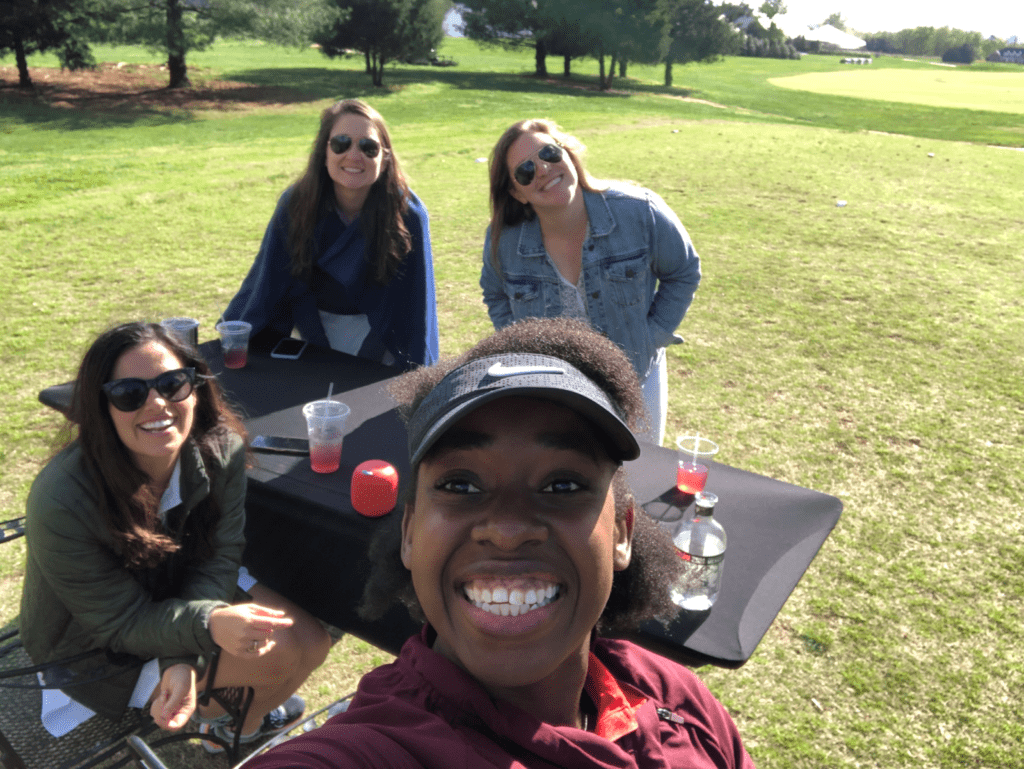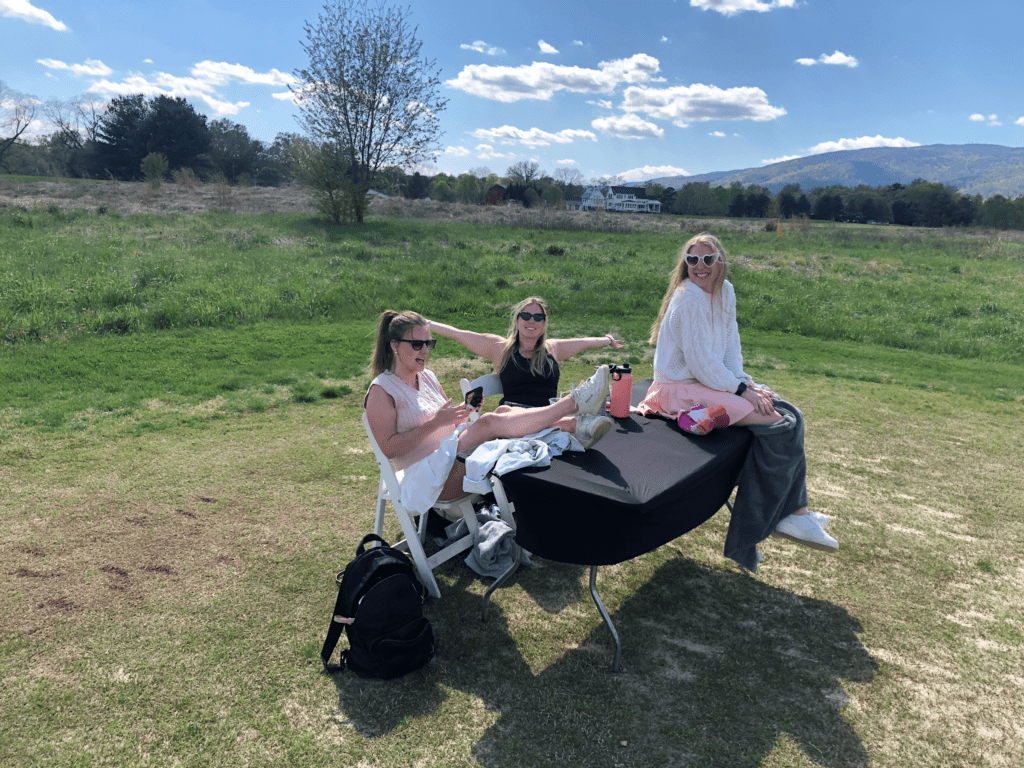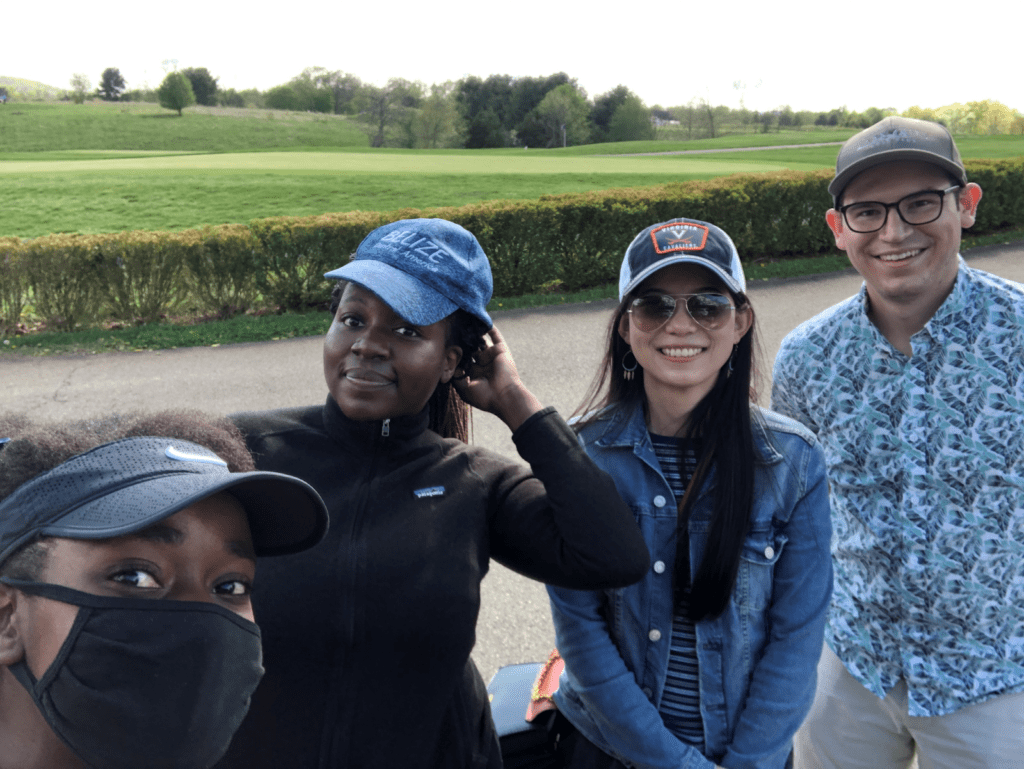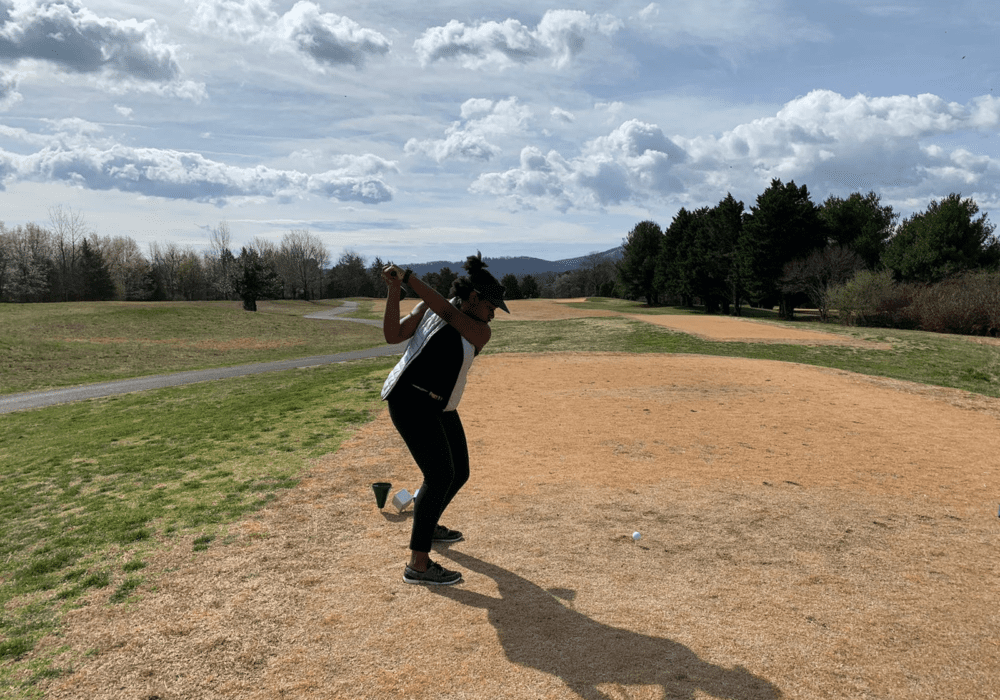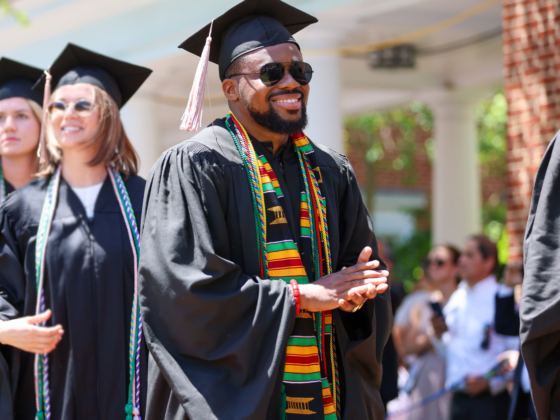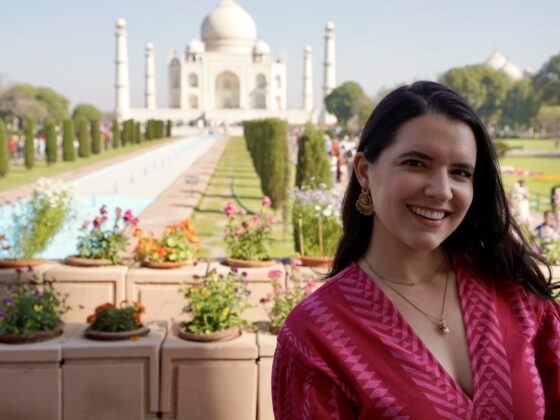Darden students recently hosted the first-ever charity golf tournament to support Mabikacheche Rural and Urban Sports Foundation (MARUSP), an organization based in Zimbabwe dedicated to expanding access to sports across Africa. Second Year Tatenda Mabikacheche (Class of 2021) shared more about the experience with the Center for Global Initiatives:
Tatenda Mabikacheche (Class of 2021) grew up in Zimbabwe. As a young girl, she saw her brother and father go out to play golf every weekend, which caused her to wonder why she had not been invited. After a few occasions of Tatenda asking her father, he eventually told her candidly that young girls didn’t typically play golf and the environment at the golf course was more of a “boys” club. Nevertheless, she did not relent. There were many responsibilities and activities, including golf, that were primarily stereotyped as being for men only; however, she started practicing golf in her backyard and soon her father decided that gender stereotypes should not be a barrier for her to play the sport.
Gaining Access to Opportunities through Sport
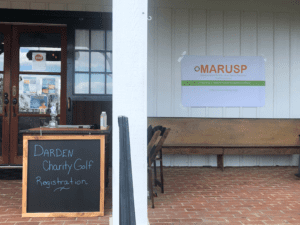
Her father took Tatenda to play golf and encouraged other parents to make the golf course a more welcoming place for women and girls. At age 13, Tatenda began playing the sport; at 16, she became the first Black woman to be certified as a golf rules official (referee); at 17, she joined the Zimbabwe women’s and junior golf national teams, flying for the first time to Asia and other countries in Africa to compete; and at 18, she set off for the United States on a scholarship to play collegiate golf. Today, she attributes her professional success in part to the networking skills and tenacity she gained as a female who began playing golf from a young age.
Tatenda’s story showcases how access to opportunities can unlock paths to success that would have otherwise remained undiscovered. Tatenda feels fortunate to be among the few girls with parents that chose to see beyond stereotypes, and her father went on to create opportunities not only for her to play golf, but also for thousands of other young people.
Expanding Access to Golf in Africa
Mr. Mabikacheche grew up in a remote rural community before Zimbabwe’s independence from the British, but broke through many barriers to succeed in the real estate industry. He became an avid golfer and realized that without the professional success he achieved, he would have never accessed the sport. In 2000, Mr. Mabikacheche, who only discovered golf about a decade before, developed a new passion for and commitment to finding ways to provide more exposure to “elite” sports, like golf, among children and youth in rural and peri-urban communities.
Though he knew the expenses for equipment and use of the facilities were high, he believed in the power of creating innovative solutions to social problems. As a result, he helped communities flatten out the soil on patches of land to create putting greens, carve wooden golf clubs and utilize dried corn cobs (that are frequently available in rural households) to create faux golf balls. Through these innovations, children could learn to play golf when they didn’t have access to regular equipment. Mr. Mabikacheche continually overcame barriers and showed that all it takes to teach the fundamentals of the sport are basic resources, an innovative mindset and the commitment to a vision.
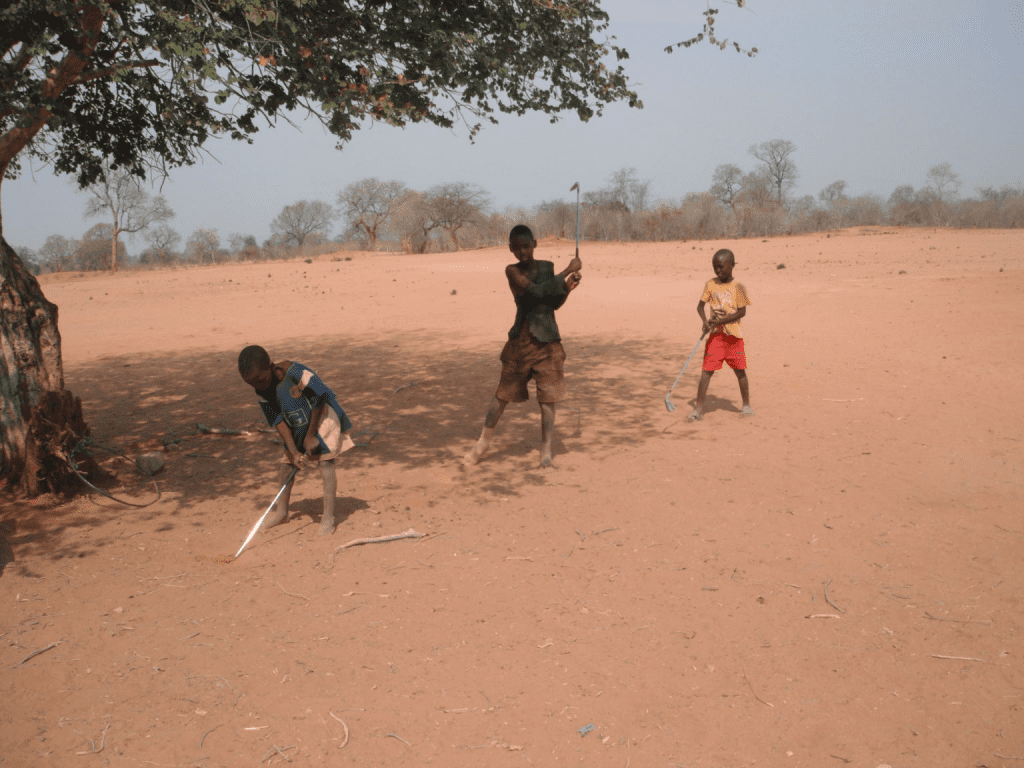
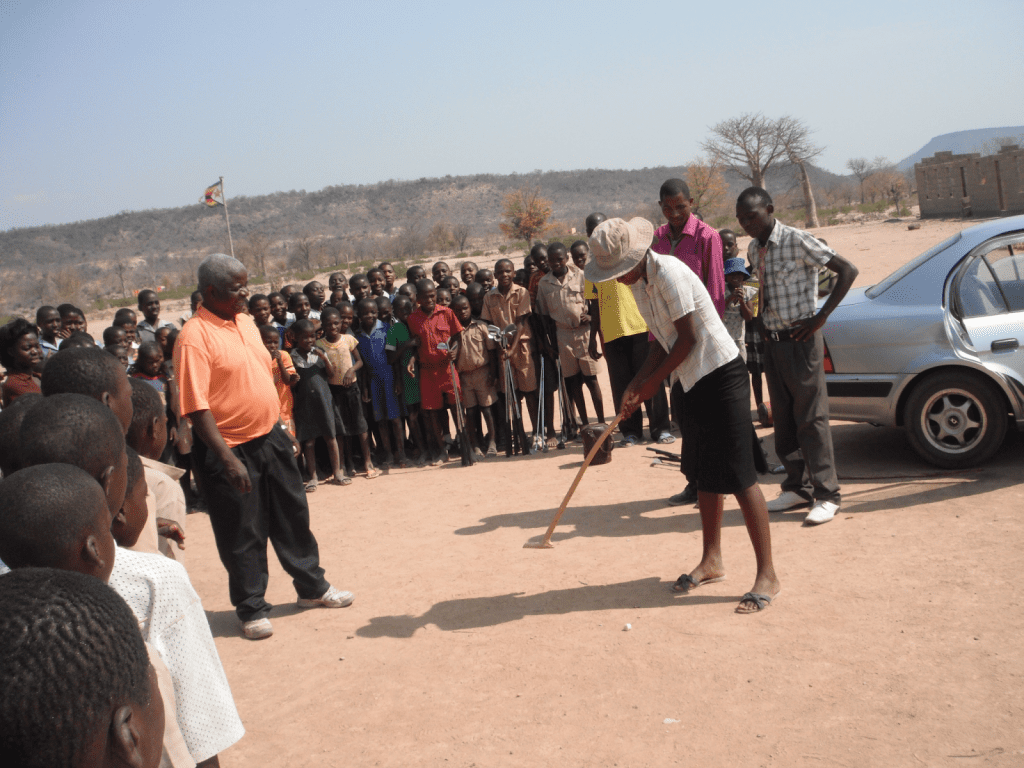
Mr. Mabikacheche founded the Mabikacheche Rural and Urban Sports Foundation (MARUSP) in 2000, benefitting many young people’s lives and creating new opportunities for teachers to become certified golf instructors in their communities. Twenty years later, on a small budget, Mr. Mabikacheche’s vision revolutionized the future of golf development in Africa. Children (boys and girls) in some of the remotest areas of Zimbabwe now play golf, and even a few of the MARUSP Golf academy proteges are now professional athletes playing competitively in Zimbabwe and across Africa.
Darden Students’ Support for the Vision
Mr. Mabikacheche had many dreams of how to continue to grow his vision, but sadly he passed away at the beginning of 2021. When one of Tatenda’s section-mates heard of the incredible work her father did and the impact he made on so many lives, she gathered several individuals to plan a charity tournament to support the organization’s mission. On 16 April 2021, Darden Golf Club (DGC) and the Darden Student Association (DSA)’s Outreach Committee partnered to host a fun, student-led charity tournament dedicated to MARUSP that drew over 70 first and second-year Darden students.
Through the power of the Darden community, MARUSP raised around $3,000 to support rural schools in Zimbabwe to safely resume sporting activities that the pandemic halted in early 2020. DGC and DSA Outreach hope to host annual charity golf tournaments to support organizations like MARUSP that create opportunities and improve livelihoods for less privileged individuals and communities.
After the tournament, in a letter to the organizers, volunteers and participants, Tatenda shared how overwhelmed with joy and gratitude she is for this kind gesture of support for the organization. She is immensely grateful for the privilege of being a member of the Darden community, surrounded by purpose-driven leaders who are generous and globally-minded, just like her father.
To learn more about the MARUSP Golf Foundation, visit www.marusp.org or contact supportgolf@marusp.org.
